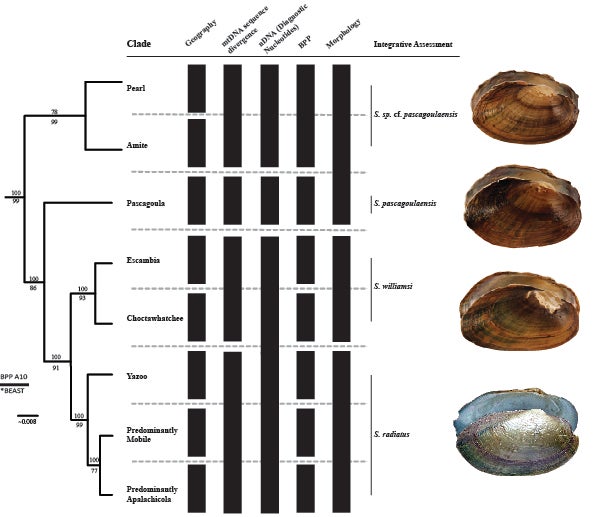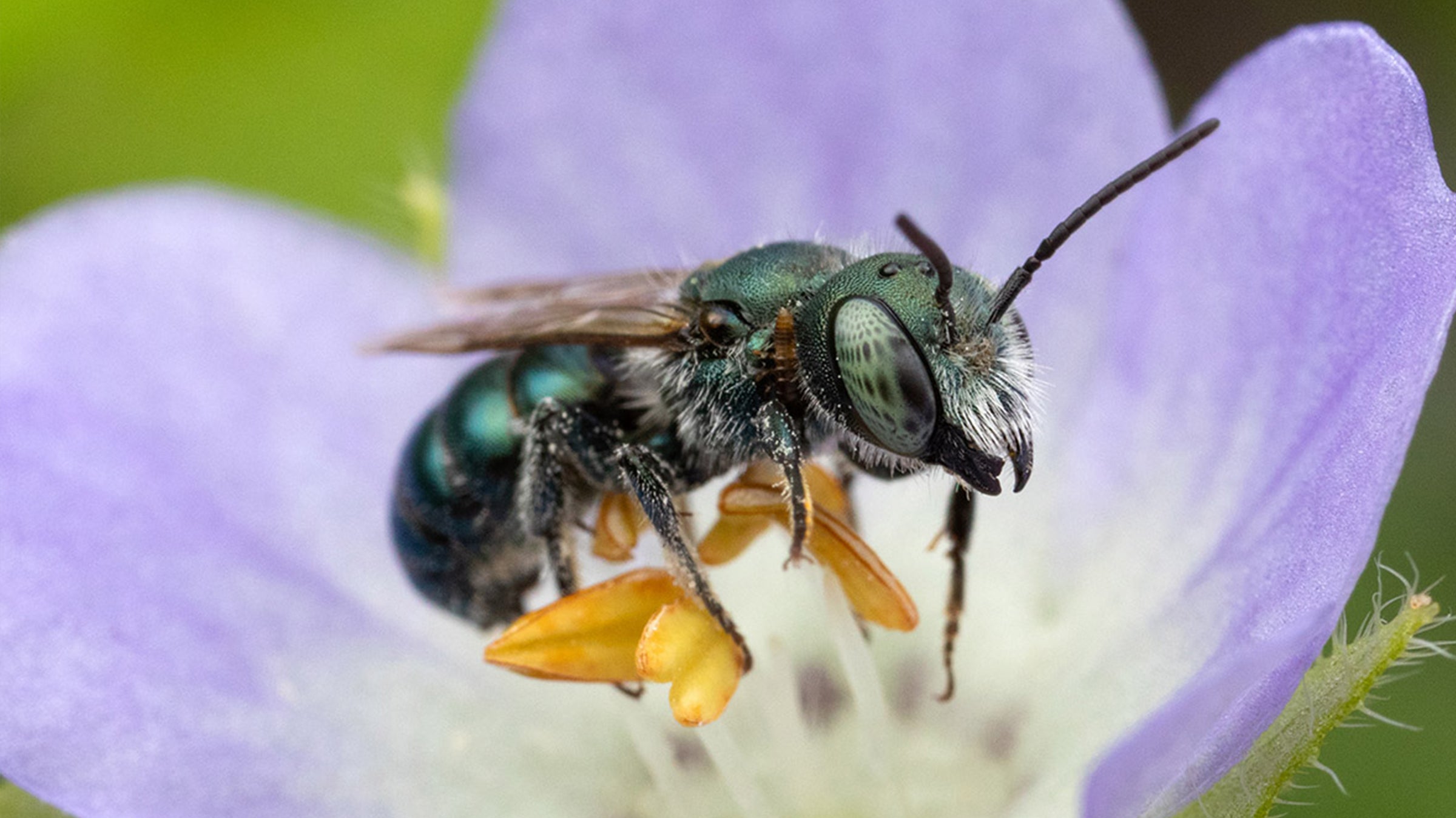
As part of the new Stengl-Wyer Endowment, the Stengl-Wyer Postdoctoral Scholars Program provides up to three years of independent support for talented postdoctoral researchers in the broad area of the diversity of life and/or organisms in their natural environments. Chase Smith is one of three scholars starting at UT this year. Chase's research focuses on resolving the evolution of freshwater mussels, an aquatic group of bivalves with approximately 300 species in the United States.
I had a chance to interview Chase about his background and his research, and ask him a question that apparently all freshwater mussel researchers get.
Tell us where you came from before UT, and what you studied.
After receiving my B.S. in Wildlife Ecology and Conservation at the University of Florida, I started at the U.S. Geological Survey working on phylogenetics of freshwater mussels. My research focused on systematics of multiple freshwater mussel species that were listed or petitioned for listing under the U.S. Endangered Species Act. After USGS, I received a PhD from Baylor University focused on resolving the evolutionary history of multiple groups of freshwater mussels.
What got you interested in studying freshwater mussels?
Before I answer that question, I must thank Nathan Johnson and Jim Williams for introducing me to these animals. First, freshwater mussels have a compelling life history that relies on obligate parasitism. Ecological pressures towards successful parasitism have created numerous striking adaptations to “go fishing” for their vertebrate hosts (primarily fish). As an avid fisherman and outdoorsman, I was baffled by their life cycle. Second, freshwater mussels have a unique mode of mitochondrial inheritance called doubly uniparental inheritance (DUI). They possess two highly divergent mitochondrial genomes, one of which is passed by females to all offspring, and a second that is passed by males only to their sons. This mitochondrial biology is enough to intrigue any biologist, and in addition to the obligate parasitic life cycle, freshwater mussels truly present a fascinating study system.

Publication figure mussel larvae and shells (Courtesy: Chase Smith)
How do natural history collections and/or field labs like the ones at UT figure into your work?
Most of my research requires natural history collections considering freshwater mussels are considered one of the most imperiled groups of organisms on Earth. Thus, museum collections are an invaluable resource for facilitating studies on freshwater mussels considering they reduce stress and take in natural populations. I have continually used collections for genetic material and to compile distributional and morphological information for numerous freshwater mussel species. These data have been imperative toward better understanding the evolution of this group and the development of effective conservation strategies. While at UT, I plan to create a freshwater mussel specific genetic repository to facilitate future studies in North America, primarily in the state of Texas.
Where do you see your research agenda heading here at UT?
UT has given me an amazing opportunity to work with some highly talented scientists across multiple scientific disciplines. My primary goal is to continue to advance the understanding of the biology, ecology, and evolution of mussels. Specifically, I plan on using phylogenomic techniques to continue to unravel the evolutionary history of freshwater mussels. Additionally, the Stengl-Wyer Endowment has given me the opportunity to investigate the origins of DUI within freshwater mussels and its influence on sex determination. I am eager to begin my research at UT, as well as create resources at the Biodiversity Center to promote future research collaborations.

Mmmmm? (Photo: Jpatokal at wts wikivoyage CC 4.0)
All this talk of mussels makes me think of bowls of steamed mussels simmering in a buttery garlic and wine sauce. So I have to ask, have you ever eaten the subject of your research?
“Can you eat ‘em?” is the most common question any freshwater mussel researcher gets. Have I ever eaten them? While in Florida you get to deal with what I believe is the most frustrating mussel genus on planet earth – Elliptio. Quoting some wise words of advice I got from one of my mentors Jim Williams: “If Texas mussels ever get you down, just turn to the plate of Elliptio jayensis in the Freshwater Mussels of Florida and your anxiety will be relieved.” Needless to say, I am happy there are not any Elliptio in Texas. While sampling a lake in Florida, I got so spiteful dealing with E. jayensis (don’t worry they are common!) that I decided to try a few and they were GROSS! Contrary to popular belief, freshwater mussels are not all that appetizing… I will stick to eating marine bivalves!
Publication figure (Courtesy: Chase Smith)




